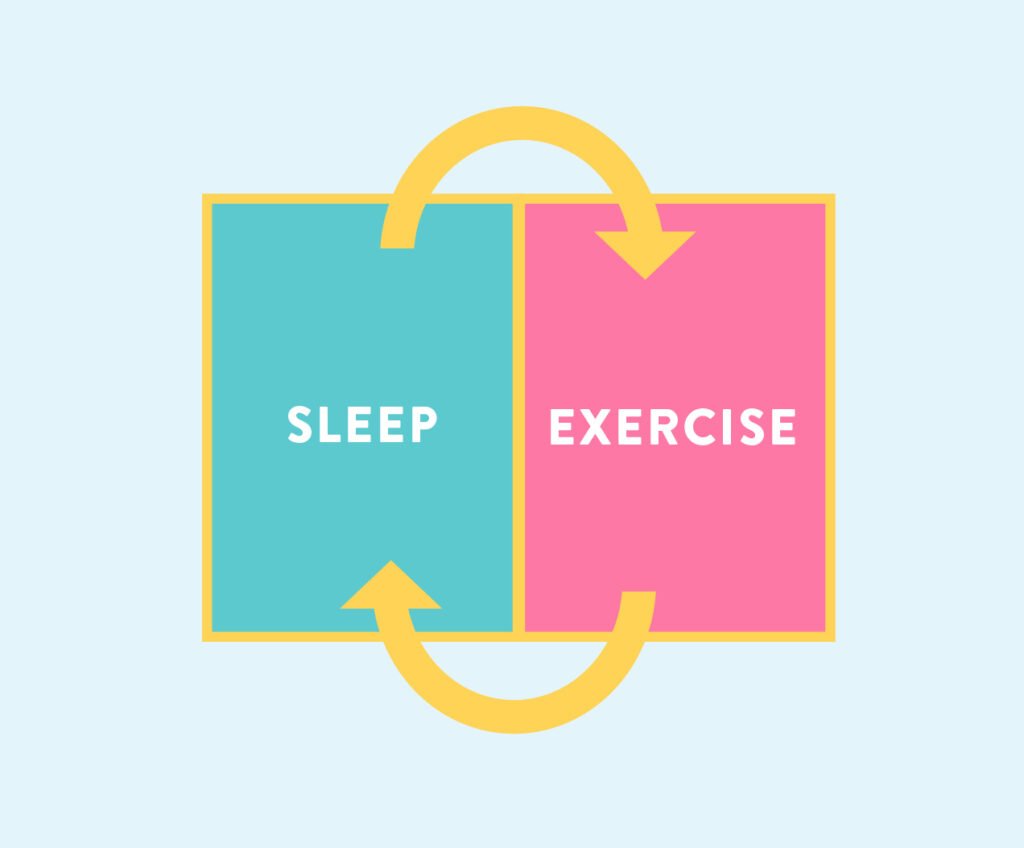
The Reciprocal Relationship Between Sleep and Physical Activity
Introduction
Ever feel like life is a whirlwind, leaving your health and well-being on the back burner? Trust me, you’re not alone. In our busy world, we often overlook two fundamental pillars of our health: quality sleep and regular exercise. Both play a crucial role in enhancing recovery, boosting mental clarity, sharpening cognitive function, and elevating physical performance. Whether you’re an athlete striving for peak performance or someone facing struggles with sleep, understanding the connection between exercise and sleep can be a true game-changer for your health journey. So, let’s dive into how these vital elements work together and discover some practical tips that could transform your life.
Regular Exercise: Your Sleep’s Best Friend
Here’s something exciting: getting regular exercise is one of the easiest and most effective ways to improve your sleep quality and duration. Research shows that folks who exercise consistently report feeling more satisfied with their sleep. Regular workouts can even help sync up your internal clock—making it simpler to drift off and wake up energized!
Take it from Dr. Winter: a lack of sleep can throw a wrench in your fitness goals. With over 30% of Americans struggling to get enough rest, the cycle of poor sleep can lead to low energy, which then makes you less likely to hit the gym. It’s like a vicious loop: bad sleep leads to less exercise, which further messes with your sleep.
Sleep: The Secret Sauce for Your Workouts
Now, let’s flip the coin. Getting enough quality sleep revitalizes your body, enhances focus, and supercharges your workout performance. When you sleep well, your immune system gets a boost, and your muscles can repair themselves—critical for reaching your fitness goals. Studies reveal that people who are well-rested tend to hit the gym harder, getting even better results.
For instance, adults who prioritize a good night’s sleep often find themselves more motivated to stick to their exercise routines. So, when you invest in sleep, you’re not just catching Z’s—you’re paving the way for those amazing workout gains.
Effects of Exercise Intensity and Timing on Sleep Quality
Moderate-Intensity Workouts: The Sweet Spot
What if I told you that the sweet spot for improving your sleep could be found in moderate-intensity exercise? Engaging in activities like brisk walking, cycling, or swimming can do wonders for your sleep, especially compared to high-intensity workouts done right before bed.
A study highlighted that folks who enjoy at least 30 minutes of moderate exercise daily sleep around 15 minutes longer than those who are less active. So, if you want to enhance your sleep, keep in mind how you exercise in terms of intensity and duration.
Timing is Everything
And don’t forget about timing! Research indicates that working out in the morning or early afternoon is usually better for your sleep quality than cramming in a session right before bed. Late-night workouts can ramp up your heart rate and body temperature, making it trickier to fall asleep. So, try switching up your routine to exercise earlier in the day for those sweet sleep benefits.
Impact of Exercise on Sleep Disorders
A Natural Remedy for Sleep Issues
If you’ve been battling sleep disorders like insomnia or sleep apnea, physical activity might just be the answer you need. Studies show that people wrestling with insomnia who incorporate exercise into their weekly schedule often see notable improvements in their sleep quality. One study even found that participants who exercised for just 30 minutes three times a week experienced marked gains in sleep satisfaction. It’s incredible to think that simply moving can help with sleep struggles!
Boosting Your Mood and Tackling Stress
Let’s not forget—regular exercise does wonders for your mood and stress levels, both of which play a huge role in how well you sleep. Active individuals frequently report feeling less anxious and depressed, leading to a calmer mind that is ready for rest. The endorphins released during exercise can also help you shed stress, making it easier to ease into a peaceful night’s sleep.
How to Apply This Information
Establishing Your Ideal Routine
Ready to transform your health journey? Here’s how to get started:
1. Take Small Steps: If you’re just starting out, begin with 10-15 minutes of moderate activity each day and gradually increase your duration as you build up your stamina.
2. Plan Morning Workouts: Try to fit exercise into your morning or early afternoon schedule, aligning it with your body’s natural rhythms for better sleep.
3. Stay Consistent: Aim for at least 150 minutes of moderate exercise weekly. Pick activities that you genuinely enjoy, making it easier to stick with your routine.
4. Tune into Your Body: Pay close attention to how different intensities and timings affect your sleep and overall well-being. Adjust your regimen as needed to find what works best for you.
5. Create a Sleep-Friendly Environment: Enhance your physical activity with sleep hygiene practices—like keeping your bedroom cool, dark, and quiet—to support better rest.
Conclusion
Recognizing the beautiful interplay between exercise and sleep is key to achieving optimal health and well-being. By crafting a balanced routine that includes moderate workouts and values sleep, you set the stage for a healthier, happier life. Remember, every small step you take can lead to significant improvements.
Did you find this post helpful? If so, share it with friends who might also benefit from these insights! Together, we can pave the way for a healthier lifestyle that prioritizes both movement and restful sleep. For additional tips and strategies, check out our other blog posts on health and wellness. Your path to better health begins now!
Hashtags: #sleep #exercise #health #workouts #well #quality #moderate #like #regular #into #better #intensity #minutes #physical #activity
